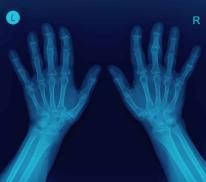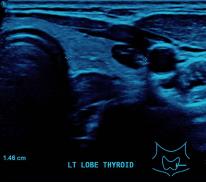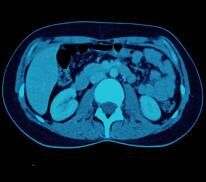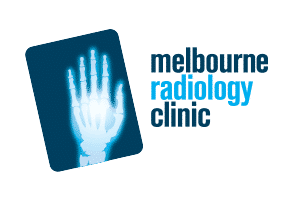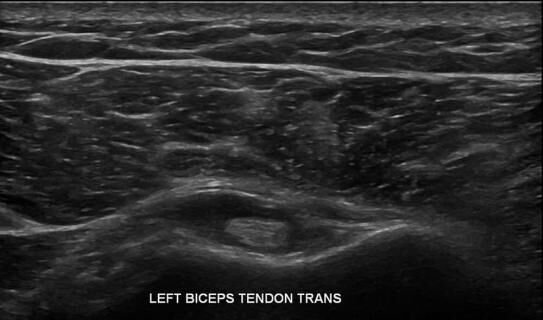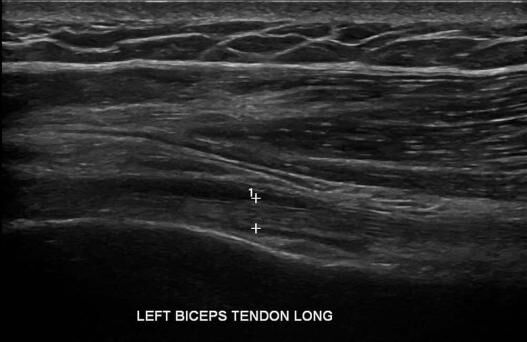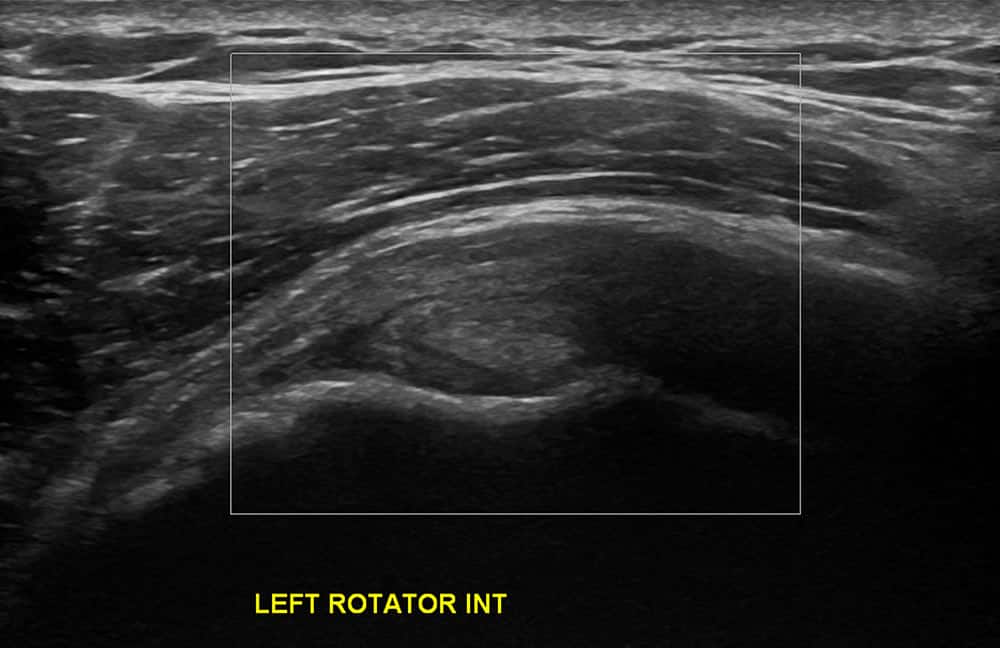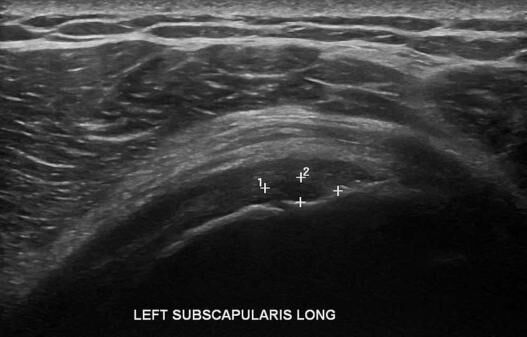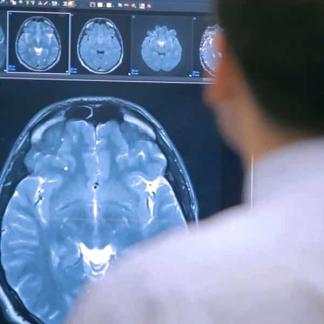Diagnostic Imaging for Shoulder Injuries.
Radiation-free Soft Tissue Imaging.
Utilising sound wave technology rather than radiation, shoulder ultrasound can be highly effective in diagnosing cases of shoulder impingement, instability and rotator cuff disorders including muscular, tendon and ligament damage, bursitis and joint effusion (swelling).
Unlike other imaging techniques, ultrasound can also assess the shoulder while in motion which can be helpful for your doctor to make a more accurate diagnosis.
Shoulder Ultrasound for Sporting Injuries.
Ultrasound can identify the structures which have been damaged as a result of shoulder injury and whether surgical intervention is necessary.
While magnetic resonance imaging (MRI) and CT arthrogram have long been the primary imaging methods used to diagnose shoulder injury, ultrasound is equally as effective at detecting rotator cuff injury and is often used as a complementary or alternative diagnostic method. Ultrasound is also safe for patients fitted with a pacemaker.
Ultrasound-guided Pain-relieving Injections.
Shoulder pain caused by subacromial bursitis (inflammation of the lubricating fluid-filled sacs surrounding the shoulder joint) can be dramatically reduced with ultrasound-guided corticosteroid injection.
The use of ultrasound during the procedure ensures the injection is administered directly into the bursa to provide effective pain relief while minimising any damage to the surrounding tissue.
Further Information.
Referring doctors are welcome to discuss with our radiologists the imaging needs of their patients and whether ultrasound is suitable for their patient’s medical condition.
Specialist Radiologists.
MSK & MRI Fellowship Trained Radiologists
